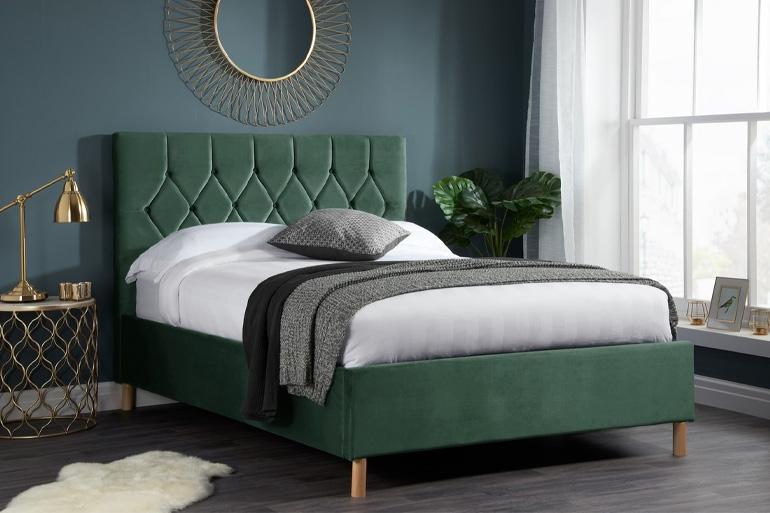In the quest for better sleep, people often turn to various remedies, from herbal teas to blackout curtains. But one sleep aid gaining popularity in recent years is somewhat unconventional: grounding sheets. These are bedsheets designed to "ground" your body while you sleep, mimicking the natural electrical connection one experiences when walking barefoot on the earth. But the question remains: do grounding sheets really help you sleep better? Let’s take a closer look at what grounding is, how these sheets work, and whether science backs up the claims.

What is Grounding or Earthing?
Grounding, also known as earthing, is the practice of making direct physical contact with the Earth’s surface. The theory behind it is rooted in the idea that the Earth’s surface contains a vast amount of negatively charged electrons. By making contact with the Earth—whether through walking barefoot, touching the soil, or, in this case, using specially designed grounding sheets—people can absorb these electrons, neutralising free radicals in the body and reducing inflammation.
Proponents of grounding claim that it can help with everything from chronic pain and inflammation to mood disorders and, yes, sleep problems.
How Do Grounding Sheets Work?
Grounding sheets are typically made of cotton woven with conductive silver or carbon fibres. These fibres connect to a grounding wire, which you plug into the grounding port of a standard electrical outlet or directly into the Earth using a grounding rod.
The idea is that when you sleep on these sheets, they create a direct connection between your body and the Earth’s electrons, similar to walking barefoot on grass. In theory, this electron flow helps balance the body’s electrical charge and mitigates health issues exacerbated by modern life, like exposure to electromagnetic fields (EMFs) from electronic devices.
The Claims: Do Grounding Sheets Improve Sleep?
Grounding advocates claim a variety of benefits, but one of the most touted is better sleep quality. Supporters argue that grounding sheets help regulate the body’s circadian rhythm, reduce night time cortisol levels (the stress hormone that can disrupt sleep), and improve overall sleep duration and depth.
Some users report falling asleep faster, staying asleep longer, and feeling more rested when using grounding sheets. Proponents also argue that grounding may reduce pain and inflammation, which could, in turn, improve sleep quality for those with chronic pain conditions.
What Does the Science Say?
The scientific evidence for grounding is still emerging. Several small studies have shown promising results, but they are often limited by sample size and methodological rigor. Here’s a breakdown of what we know so far:
-
Reduced Inflammation and Pain: Some studies suggest that grounding may help reduce inflammation. One small study published in The Journal of Alternative and Complementary Medicine found that grounding reduced pain and inflammation in participants who had delayed-onset muscle soreness.
-
Cortisol Levels and Sleep: A study published in 2004 found that grounding during sleep helped regulate cortisol secretion in participants, potentially reducing stress and promoting better sleep. The study concluded that grounded participants had a significant improvement in sleep quality and a normalised cortisol pattern.
-
Improved Sleep: Anecdotal evidence from users and a few small studies indicate that grounding sheets may improve sleep quality. In a 2012 study, subjects who used grounding sheets reported better sleep, less pain, and improved mood.
While the findings are encouraging, it’s important to note that more large-scale, peer-reviewed studies are needed to confirm the benefits of grounding sheets for sleep.
Are There Any Risks?
Grounding sheets are generally considered safe, as long as they are used properly. However, there are a few precautions to keep in mind:
-
Proper Installation: It’s crucial to ensure that the grounding sheets are correctly installed and connected to a verified grounding source. Using a faulty grounding source or incorrectly installing the sheet could expose you to electrical hazards.
-
Allergies: If you have a sensitivity to materials like silver or carbon, grounding sheets may not be the best option for you.
Should You Try Grounding Sheets for Sleep?
If you’re struggling with sleep and are curious about alternative approaches, grounding sheets might be worth trying, especially if you’re interested in holistic or nature-based health solutions. The potential benefits—better sleep, reduced inflammation, and lower stress—are enticing, and the risks are minimal as long as the sheets are used properly.
However, keep in mind that the science behind grounding is still evolving, and grounding sheets are not a guaranteed solution for sleep problems. If you suffer from chronic insomnia or a sleep disorder, it's essential to consult a healthcare professional for appropriate diagnosis and treatment.
Conclusion
Grounding sheets represent an interesting and emerging trend in the world of sleep aids. While early studies and user testimonials suggest they may offer benefits like improved sleep and reduced stress, the scientific community still needs more robust research to fully endorse their efficacy. If you’re open to trying new approaches to better sleep and believe in the benefits of reconnecting with nature, grounding sheets could offer a simple, low-risk option to enhance your night time rest.
Have you ever tried grounding sheets? What was your experience like? Let us know in the comments!




